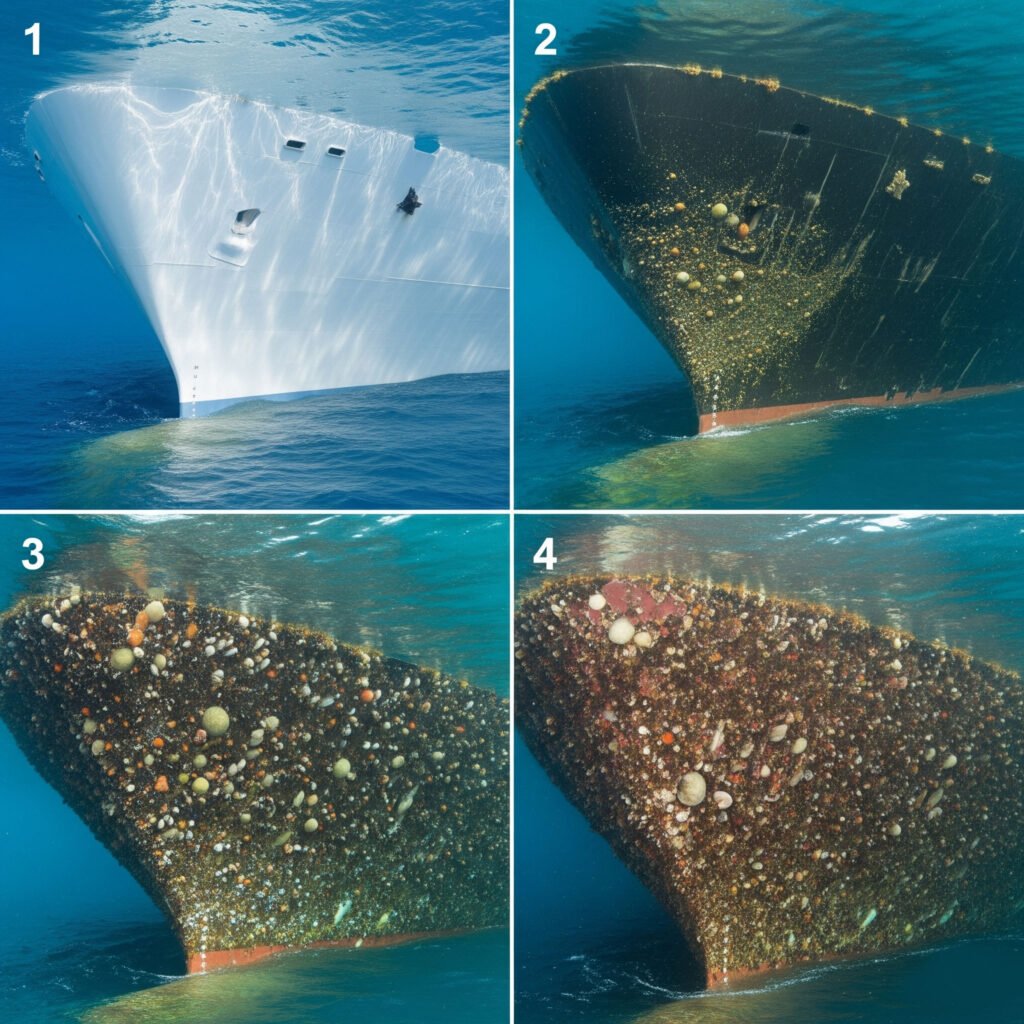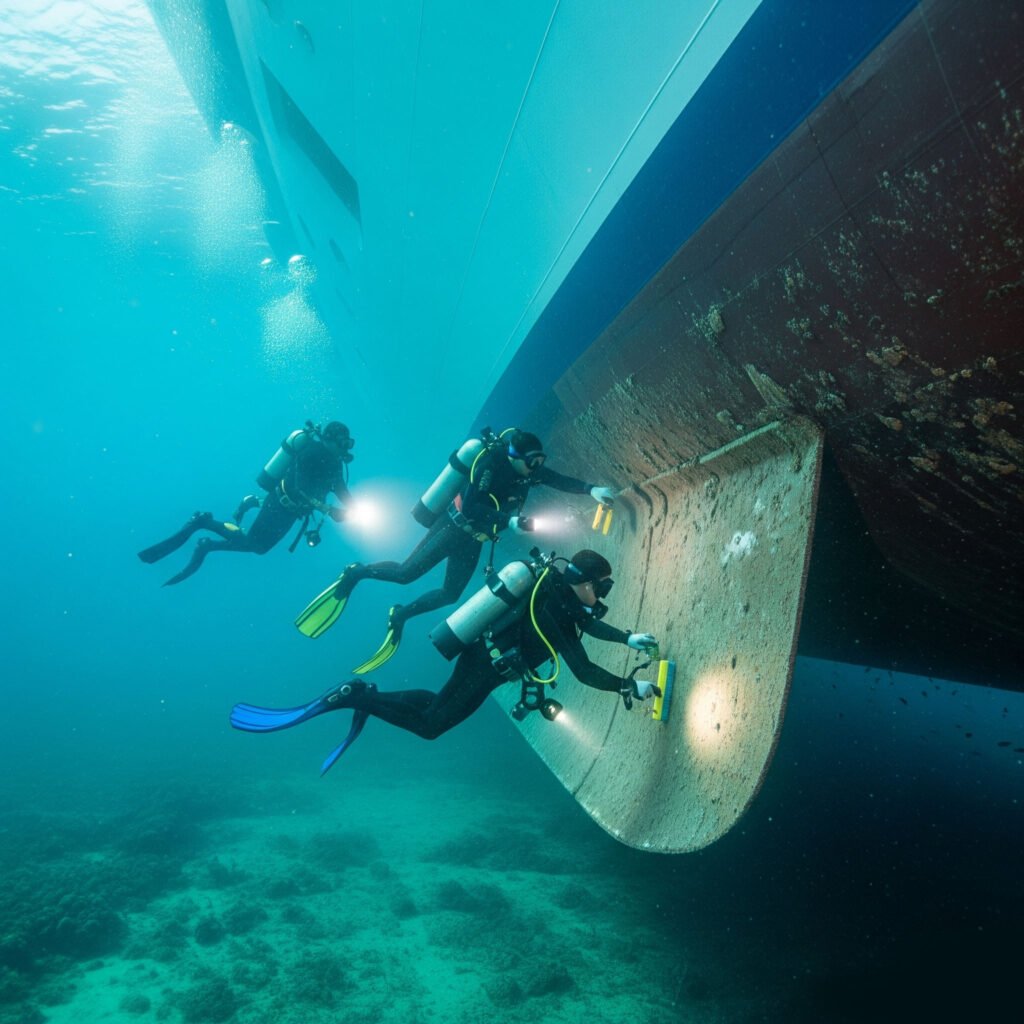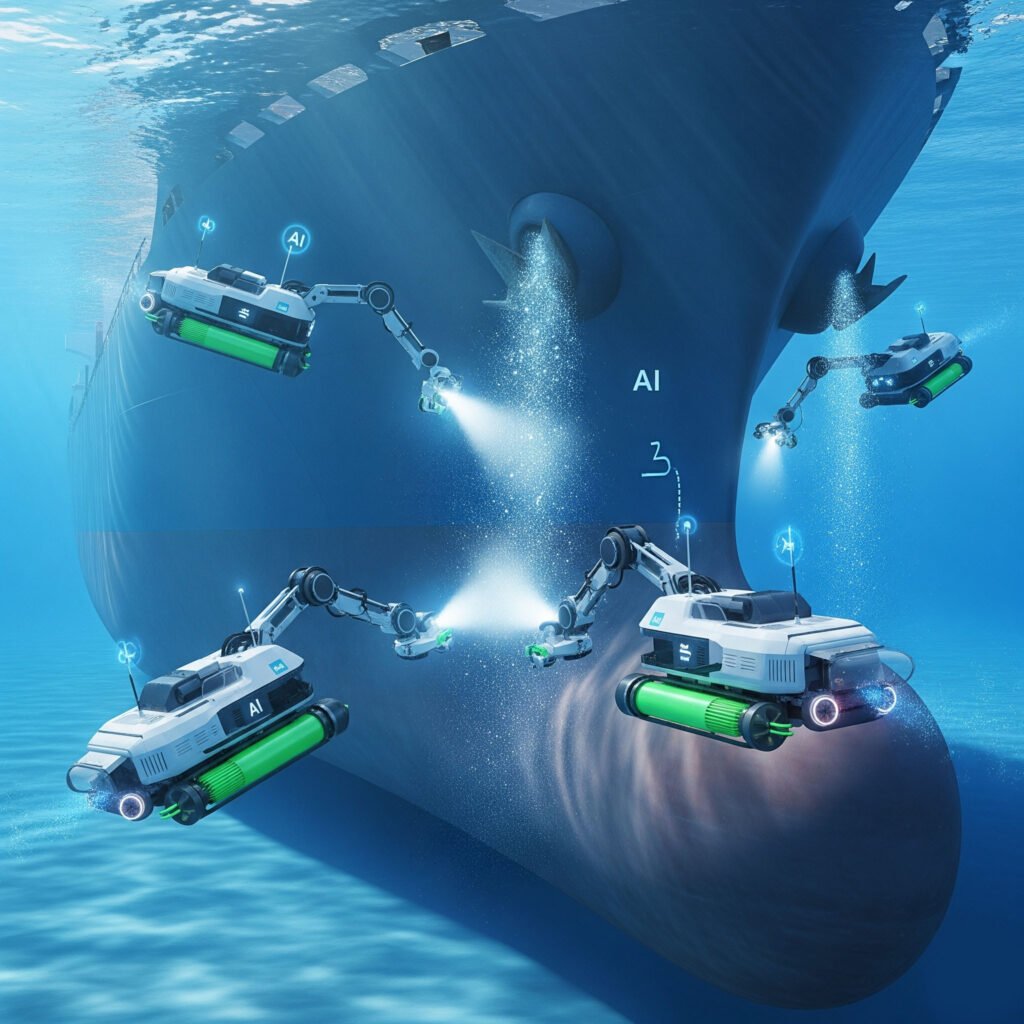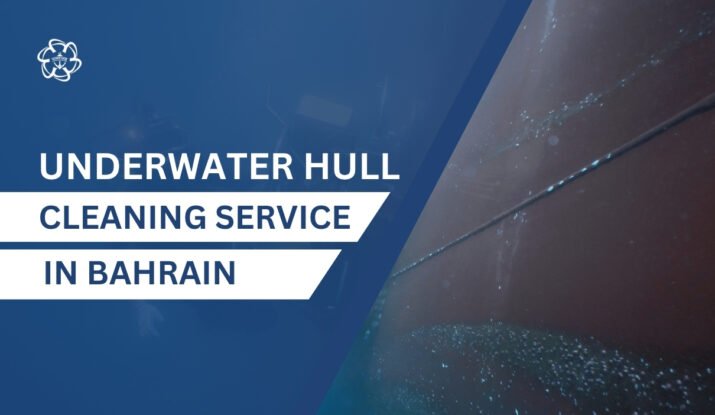Underwater Hull Cleaning in Bahrain, a thriving maritime industry, vessels must operate efficiently and sustainably to meet modern-day demands. One often ignored yet critically important service is underwater hull cleaning. This essential procedure plays a huge role in maintaining a vessel’s speed, performance, fuel efficiency, and regulatory compliance.

Why Underwater Hull Cleaning in Bahrain Is a Smart Move
1. Location Advantage:
Bahrain lies in the heart of the Arabian Gulf, serving as a strategic port for cargo, oil, and passenger ships. With its growing infrastructure and bustling ports like Khalifa Bin Salman Port, Bahrain attracts thousands of ships every year. However, due to its warm seawaters, vessels operating in Bahraini waters are prone to marine biofouling—barnacles, algae, and other organisms that stick to the hull.
2. Significant Fuel Savings:
A clean hull reduces friction, which means the engine doesn’t have to work as hard. Studies have shown that Underwater Hull Cleaning in Bahrain can improve fuel efficiency by up to 30%. For large container ships, this could mean hundreds of thousands of dollars saved annually. In a competitive industry where operational costs are constantly rising, this is a huge win.
3. Eco-Friendly Compliance:
Environmental concerns are no longer optional. The International Maritime Organization (IMO) and local authorities are pushing for greener shipping practices. A dirty hull not only consumes more fuel but also increases CO2 emissions. Cleaning the hull helps reduce your environmental footprint while staying compliant with MARPOL Annex V and Bahrain’s marine protection policies.

What Happens If You Neglect Underwater Hull Cleaning in Bahrain?
1. Increased Operational Costs:
Ignoring hull cleaning can be a costly mistake. A fouled hull increases drag, which directly impacts fuel consumption. It also causes the vessel to slow down, often leading to missed deadlines, penalties, or route adjustments. In the long run, the accumulated fuel costs and inefficiencies hurt profitability.
2. Port Penalties and Detainment:
Ports in Bahrain, especially Mina Salman and other busy terminals, have strict regulations concerning vessel hygiene. Ships arriving with heavy marine growth may face port inspection delays, fine imposition, or mandatory cleaning orders before loading or unloading. These delays can cause logistical headaches and unplanned expenses.
3. Environmental Risks and Reputation Damage:
Dirty hulls carry invasive marine species from one region to another. This contributes to marine biodiversity loss, a key concern for environmentalists and marine regulators alike. Failing to address biofouling may tarnish your company’s reputation, making it harder to build trust with international clients or regulatory bodies.
How Underwater Hull Cleaning in Bahrain
Now that you understand the risks and importance, let’s look at how Underwater Hull Cleaning in Bahrain is professionally carried out in Bahrain.
1. Pre-Cleaning Inspection
Before starting, divers or robotic systems conduct an underwater survey using cameras and sonar equipment. This helps determine the level and type of fouling, hull condition, and specific areas that require detailed attention, like the propellers, rudders, or intake grates. Many cleaning companies in Bahrain also use ROVs (Remotely Operated Vehicles) for high-resolution scanning and safer inspection.
2. Cleaning Method Selection
There are typically three main techniques used:
- Diver-Based Mechanical Brushing: Certified commercial divers use rotating brushes and hydraulic tools to scrub marine growth off the hull. These brushes are pressure-controlled to avoid damaging the paint or coating on the ship.
- ROV Robotic Cleaning: These robots use wheels, suction, and rotating heads to scrub the hull while minimizing diver risk. They’re ideal for larger vessels like tankers, cargo carriers, and cruise liners.
- Eco-Friendly Cavitation Cleaning: Using ultrasonic sound waves and microbubbles, this method removes biofouling without scraping the surface. It’s safe for both the environment and expensive anti-fouling paints.
Some companies also provide propeller polishing and sea chest cleaning as part of the package for full efficiency.

3. Post-Cleaning Inspection & Reporting
Once the cleaning is complete, another visual or sonar inspection is carried out to ensure all fouling has been removed. The service provider then issues a detailed cleaning report with photographic evidence. This is useful for:
- Compliance with maritime authorities
- Insurance claims
- Maintenance documentation
- Client reporting
Most service providers in Bahrain submit cleaning records digitally, making it easier for shipowners and managers to monitor hull health remotely.
Conclusion: Cleaner Hulls, Smoother Voyages
Underwater hull cleaning in Bahrain is not just a maintenance task—it’s a critical investment in your vessel’s performance, cost-efficiency, and environmental responsibility. By keeping hulls clean, shipowners can save fuel, avoid penalties, stay compliant, and extend their vessel’s operational life.
As Bahrain continues to grow as a maritime hub, the demand for safe, professional, and eco-conscious hull cleaning services will only rise. Choosing certified service providers who use the latest technologies ensures that your vessel remains in top condition without harming the marine environment.
In a world where every second counts and every drop of fuel matters, clean hulls truly make the difference
FAQ:
1. What is underwater hull cleaning?
Underwater hull cleaning is the process of removing marine growth such as algae, barnacles, and other biofouling from a ship’s hull while it is still in the water, without needing to dry dock.
2. Why is hull cleaning important for vessels operating in Bahrain?
Bahrain’s warm waters promote rapid marine growth on hulls, which increases drag and fuel consumption. Regular cleaning improves fuel efficiency, reduces emissions, and helps vessels meet port and environmental regulations.
3. How often should underwater hull cleaning be done?
Cleaning frequency depends on the vessel’s operating environment but typically ranges from every 3 to 6 months to prevent excessive fouling and maintain optimal performance.
4. Where can I find certified underwater hull cleaning services in Bahrain?
Several companies in Bahrain offer professional cleaning services using certified divers and advanced technology. It’s best to choose providers compliant with IMO and NPC guidelines.
5. What makes CleanShip.co a trusted option for underwater hull cleaning in Bahrain?
cleanship.co offers advanced, eco-friendly hull cleaning solutions using state-of-the-art robotic technology and certified divers. Their services comply with international standards such as IMO regulations, ensuring efficient cleaning without damaging the hull or harming the marine environment. Many shipowners in Bahrain rely on CleanShip.co for reliable, safe, and environmentally responsible underwater hull cleaning.


